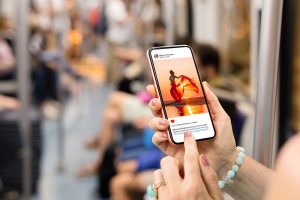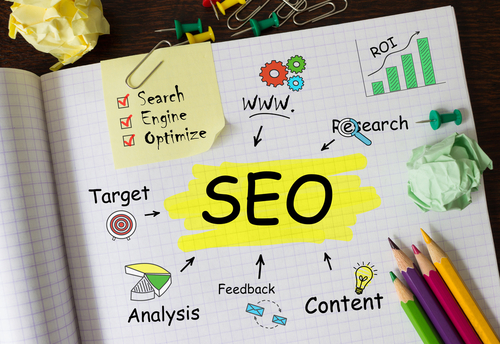Enhance Your SEO Using Optimized Images
Have you ever wondered why some websites consistently rank higher on search engines? The answer often lies in the details, and one crucial aspect is image optimization for SEO. In digital marketing, visuals play a significant role in user engagement, and understanding how to optimize images can impact your website’s search engine performance. From faster loading times to an improved user experience, Now Media Group, a leading digital marketing agency, can help you optimize images for improved website rankings.
Are you ready to learn more about our SEO services? Contact our team today to setup your free website evaluation!
What Are Optimized Images?
Optimized images are pictures that have been strategically modified and formatted to enhance their performance on websites, particularly in the context of search engine optimization (SEO). The optimization process aims to balance maintaining visual quality while reducing file sizes to improve website speed and user experience.
When it comes to online content, speed matters. Users today expect websites to load swiftly, and search engines favor faster-loading pages. Unoptimized images can be a bottleneck, slowing down your site’s performance. Search engines like Google consider page speed as a search ranking factor. By optimizing your images, you not only enhance the user experience but also signal to search engines that your site is efficient and deserving of a higher rank.
How to Successfully Optimize Images
 Compression is Key
Compression is Key
One of the fundamental steps in image optimization is compression. Large image files can significantly slow down the loading of your website, leading to higher bounce rates and fewer conversions.
Use tools and plugins to compress your images without compromising quality. Popular tools include TinyPNG, ImageOptim, and Adobe Photoshop’s Save for Web feature. Striking the right balance between file size and image quality is crucial for an optimal user experience and better SEO.
You may also consider resizing an image. Resize images to the specific dimensions required on your website. We recommend avoiding using large images and relying on HTML or CSS to resize them, as this can still impact loading times.
Descriptive Filenames and Alt Text
Search engines rely on alt text to understand the content of an image since they can’t “see” images the way humans do. That’s why it’s best to use descriptive filenames and alt text for your images. Instead of generic names like “image001.jpg,” opt for something more descriptive with relevant keywords. Alt text provides a textual description of the image, aiding search engines in understanding its context and improving your chances of ranking higher in image searches.
Alt text also benefits SEO, as it demonstrates that you have an accessible website.
Responsive Images for Mobile Optimization
With an increasing number of users accessing the internet via mobile devices, optimizing images for mobile is crucial. Use responsive images that adapt to different screen sizes, ensuring a seamless experience for mobile users. Google prioritizes mobile-friendly websites in its rankings, making mobile optimization a key component of image SEO.
Choose the Right File Format
Images come in various formats. To best optimize images on your website, use appropriate file formats, such as JPEG for photographs and PNG for images with transparency. There’s also WebP, which is an emerging format that offers high-quality compression, promoting faster loading times.
Implement Image Lazy Loading
Lazy loading is a technique that defers the loading of images until they’re about to be displayed on the user’s screen. This prioritizes the loading of content that’s immediately visible, improving initial page load times. Lazy loading is particularly effective for pages with numerous images, ensuring a smoother user experience.
Take Your Website to the Next Level With Image Optimization
When it comes to SEO, paying attention to image optimization can set your website apart. From improving loading times to catering to mobile users, each aspect contributes to a more favorable user experience. Allow our knowledgeable team at Now Media Group to help you enhance your SEO and create a visually appealing and efficient website that stands out in the digital realm.
Contact one of our skilled team members by calling (858) 333-8950.
